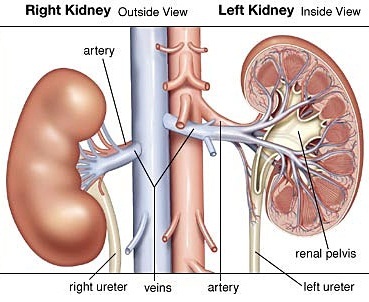



The kidneys are a pair of organs that help remove wastes from the body and maintain internal balance. When kidney disorder occurs, these functions may be compromised. People who only have 20% kidney function remaining may face renal failure, an end-stage kidney dysfunction which can be life-threatening. To avoid this, patients must consult a nephrologist, who is a kidney specialist to get proper treatment and advice.
Symptoms of early kidney disorder are often mild and come unnoticed. However, if you have only 20% kidney function, you may experience marked changes, which include:
As your kidney function deteriorates, your signs and symptoms will worsen and you will need definitive treatment to improve your health. When your tests show that you only have 20% kidney function, your doctor may recommend these treatments before kidney failure sets in:
To prevent toxic accumulation of wastes and chemicals in the body due to kidney failure, dialysis may be recommended. There are two types of dialysis one can choose from to clean the blood: peritoneal dialysis and hemodialysis. Each type has its own risks and advantages. Patients who choose to undergo hemodialysis in a dialysis facility get treatments three times a week to have their blood cleaned. Those who choose peritoneal dialysis can remove toxins at home, using a catheter that is inserted into their belly.
Patients with kidney failure may need to look for prospective donors for a kidney transplant. The process of searching and screening for donors can take several months, but it could be the best life-saving treatment.
Patients with kidney failure may need to look for prospective donors for a kidney transplant. The process of searching and screening for donors can take several months, but it could be the best life-saving treatment. However, you cannot rely on just one donor, because a good match may not be found or the potential donor may be excluded from health issues such as hypertension. One option is to ask the nephrologist for paired organ donations where one donor gives an organ to someone else in exchange for a kidney for another patient. Some several facilities, such as Johns Hopkins Hospital, help patients make arrangements for paired organ donations.
If you have serious kidney problems, you must adjust your diet to prevent serious complications and preserve your health.
Depending on your symptoms and the complications with 20 kidney function, there’re more treatments which include:
Here are some questions patients with 20 percent kidney function or low kidney function often tent to ask.
Yes, you can, as long as you follow an exercise program that is approved by your doctor to increase your strength and endurance. Exercise can also help reduce stress, depression and fatigue and can improve your quality of living.
Yes, you can, as long as your trip is included with arrangements for dialysis in the area you are visiting, medications you should take, and notifying the hospital staff how to reach you if you are on a transplant waiting list.
Your desire for sexual activity may be lower as well as your interest in social activities. Inability to maintain penile erection(impotence) is common among patients with low kidney function or kidney failure. However, many kidney transplant recipients become more sexually active as their kidney function improves.
Watch this video to learn more about how to live and cope with low kidney function: